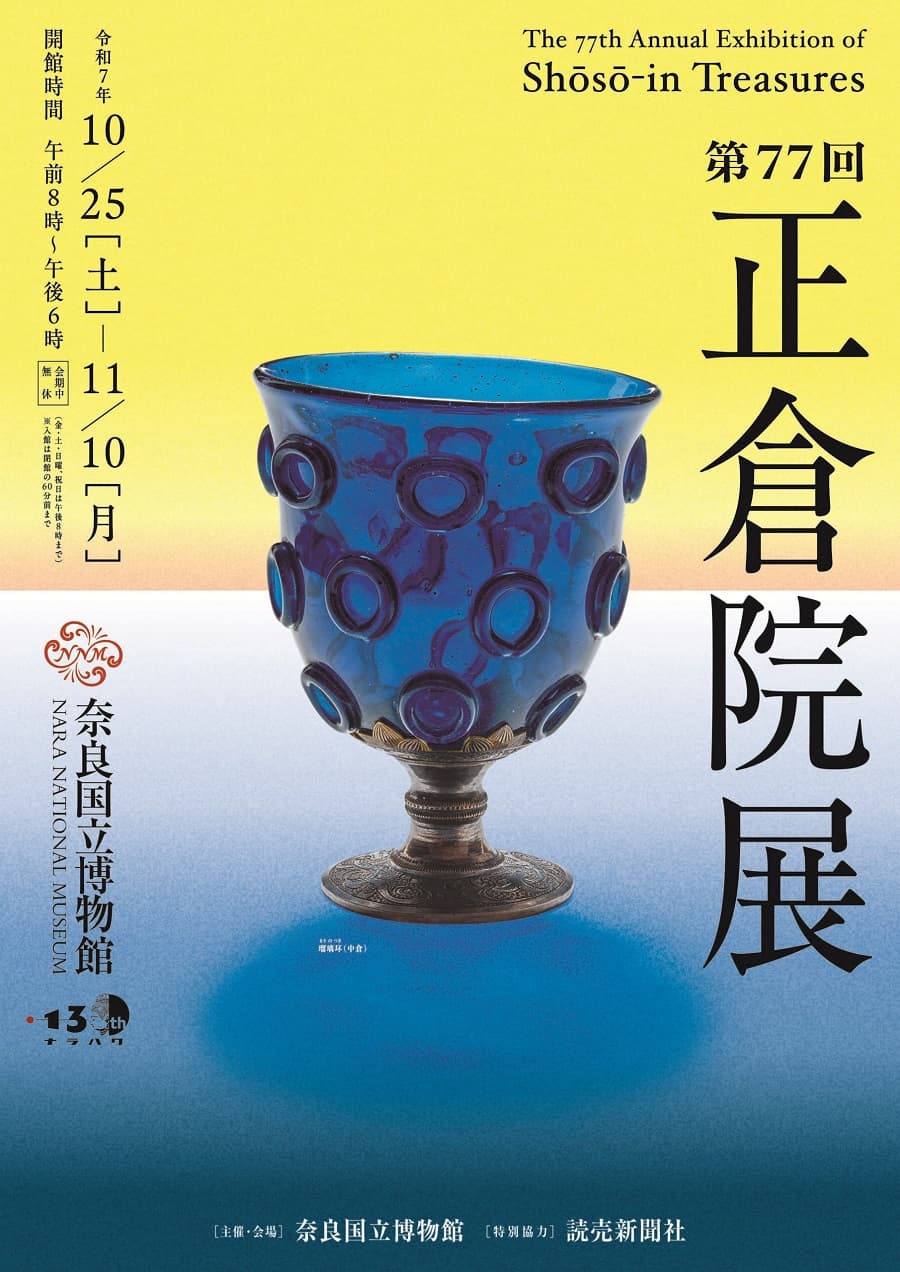Nara National Museum
2025.9.2
The 77th Annual Shōsōin Exhibition

【Exhibition Title】
The 77th Annual Shōsōin Exhibition
【Venue】
Nara National Museum
【Dates】
October 25 (Sat) – November 10 (Mon), 2025 (Reiwa 7)
【Hours】
8:00 AM – 6:00 PM (last admission 60 minutes before closing)
*Extended hours until 8:00 PM on Fridays, Saturdays, Sundays, and national holidays.
【Closed】
Open every day during the exhibition period.
【Admission】
Adults: ¥2,000
University & High School Students: ¥1,500
Elementary & Junior High School Students: ¥500
Campus Members (Students): ¥400
Late Admission Discount: Adults ¥1,500 / University & High School Students ¥1,000 / Elementary & Junior High School Students Free
*Late admission applies to “time-slot tickets” after 4:00 PM on Mon–Thu and after 5:00 PM on Fri–Sun & national holidays.
*If slots are available, same-day “time-slot tickets” will be sold at the special counter inside the museum grounds (issuance fee: ¥200 per ticket).
*Advance purchase is recommended, as desired time slots may sell out.
【Overview】
Every autumn, the imperial seal of the Shōsōin Repository is ceremonially broken to allow for the inspection of its treasures. At this time, the Shōsōin Exhibition is held to present selected treasures to the public. The selection of exhibits is made with careful consideration to present the overall character of the collection, while also featuring items that reflect the latest research findings or that are of particular public interest.
The Shōsōin Exhibition was first held in 1946 (Shōwa 21) at the Nara Imperial Household Museum (now the Nara National Museum). Since then, except for three occasions when it was held in Tokyo (1949, 1959, 1981), it has been held annually in Nara.
The 77th Annual Shōsōin Exhibition will present a total of 67 treasures, including 6 items being displayed for the first time.
Among them are the Mokuga Shitan Sugoroku-kyoku and the Heira Saibai Enkyō, both recorded in the Kokka Chinpōchō, the inventory of Emperor Shōmu’s cherished possessions. Also featured are the celebrated fragrant wood Kōjuku-kō, better known as Ranjatai, and the deep indigo-blue glass cup Ruri-hai.
Member Sign In